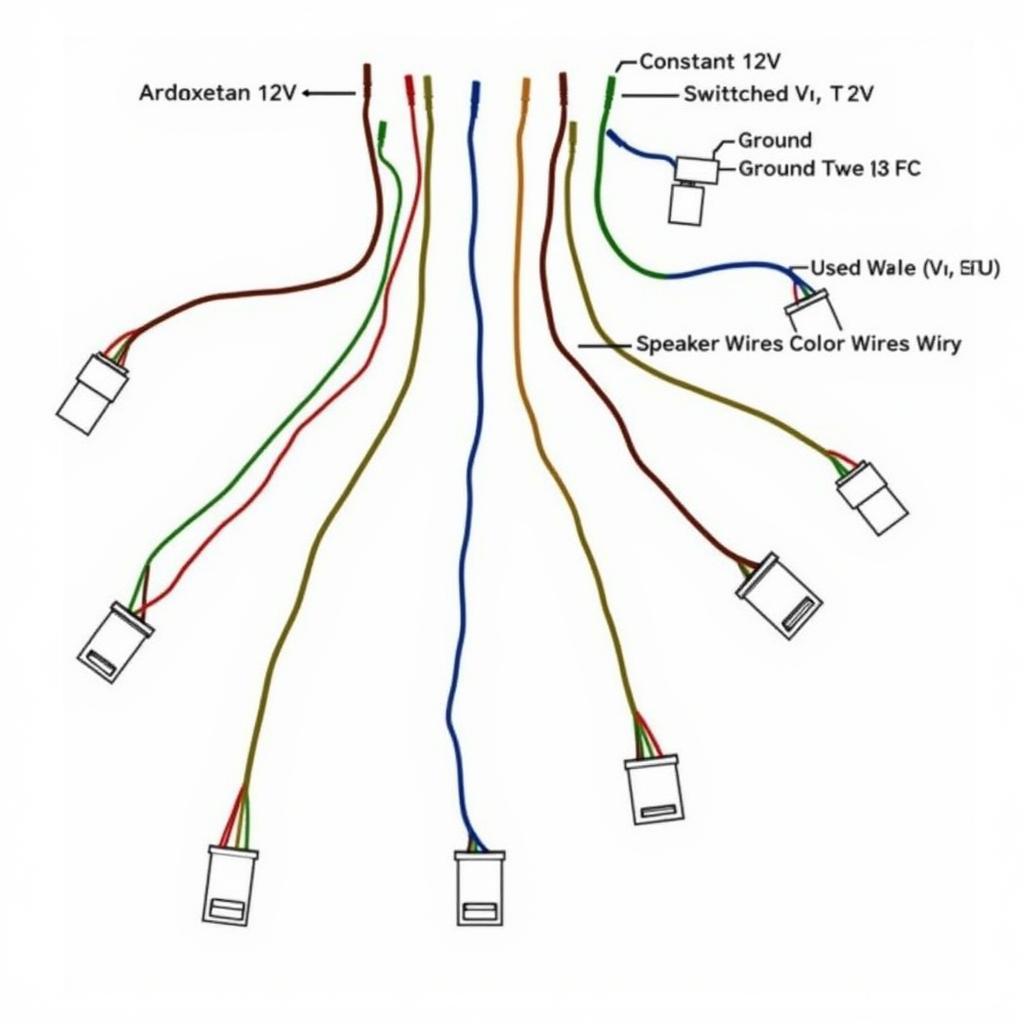When you see the warning light for worn brake pads on your Volkswagen CC, it’s time to take action. This light signifies that your brake pads are nearing the end of their life and require immediate attention. Ignoring this warning can lead to serious consequences, including reduced braking performance, damaged brake rotors, and even accidents.
Understanding the Warning Light
The “warning worn brake pads” light on your Volkswagen CC typically looks like a red or yellow icon depicting a car with a brake caliper and a small exclamation mark. It’s important to note that this light may not always be triggered by the exact point where your brake pads reach their minimum thickness. It’s best to err on the side of caution and consult with a qualified mechanic once this warning light appears.
Why This Light Matters
Ignoring the “warning worn brake pads” light is not an option. Here’s why:
- Reduced Braking Performance: Worn brake pads will lead to a longer braking distance, meaning you’ll need more time and space to come to a complete stop. This can be particularly dangerous in emergency situations.
- Damage to Brake Rotors: Worn brake pads can cause damage to your brake rotors, requiring costly replacement or repair.
- Increased Risk of Accidents: With less effective brakes, the risk of accidents increases significantly. This can lead to injuries, property damage, and potentially even legal consequences.
What to Do When You See the Warning Light
The best course of action once you see the warning light is to immediately contact your local Volkswagen dealer or a reputable mechanic specializing in Volkswagen vehicles. They will be able to inspect your brakes and determine if they need replacing.
Here’s what to expect during a brake inspection:
- Visual Inspection: The mechanic will visually inspect the thickness of your brake pads and rotors.
- Thickness Measurement: They’ll use a brake caliper tool to accurately measure the remaining pad thickness.
- Check for Other Issues: They’ll inspect for any other potential problems with your braking system, such as worn rotors, damaged calipers, or leaking fluid.
What to Expect if Your Brake Pads Need Replacing
If the inspection reveals that your brake pads need replacing, the mechanic will typically:
- Replace the Brake Pads: They’ll remove the old pads and install new ones.
- Clean and Inspect Brake Rotors: They’ll thoroughly clean and inspect the brake rotors, replacing them if necessary.
- Lubricate Components: They’ll lubricate any moving parts to ensure smooth operation.
- Test and Adjust Brakes: They’ll test the new brake pads and rotors, ensuring proper braking performance, and adjust as needed.
How Often Should You Check Your Brake Pads?
While the “warning worn brake pads” light is a reliable indicator, it’s a good practice to have your brakes inspected regularly, especially if you frequently drive in heavy traffic or harsh conditions. Aim for brake inspections every 6 to 12 months, or at least every 10,000 miles.
“My recommendation for brake maintenance is simple: Be proactive, not reactive. Schedule regular inspections to catch issues before they become major problems,” says John Miller, a certified Volkswagen mechanic with over 20 years of experience.
Can You Replace Brake Pads Yourself?
While replacing brake pads might seem like a straightforward task, it’s a complex procedure that requires specific tools and expertise. It’s highly recommended to have a professional mechanic handle this job to ensure proper installation and safety.
Common Causes of Worn Brake Pads
Here are some of the common causes of premature brake pad wear:
- Aggressive Driving: Excessive braking and acceleration can wear down brake pads more quickly.
- Heavy Load: Driving with a heavy load, such as a trailer or a full car, can put additional stress on the brakes.
- Harsh Driving Conditions: Driving in dusty or wet conditions can accelerate brake pad wear.
- Poor Quality Brake Pads: Using low-quality brake pads can lead to premature wear.
Tips for Extending Brake Pad Life
Here are a few tips to help prolong the life of your brake pads:
- Drive Smoothly: Avoid hard braking and accelerate gradually.
- Anticipate Stops: Look ahead and anticipate traffic signals and road conditions to avoid sudden braking.
- Maintain Proper Tire Pressure: Ensure your tires are properly inflated to minimize wear and tear on your brakes.
- Use High-Quality Brake Pads: Invest in high-quality brake pads from reputable manufacturers.
What to Do if You Experience Brake Problems
If you experience any unusual noises, vibrations, or a soft pedal while braking, contact your mechanic immediately. It’s crucial to address any brake problems promptly before they become major issues.
“Ignoring brake problems is never a good idea. If you notice any issues, get it checked right away. It’s always better to be safe than sorry,” advises John Miller.
FAQ
Q: What happens if I ignore the “warning worn brake pads” light?
A: Ignoring the warning light can lead to reduced braking performance, damaged brake rotors, and increased risk of accidents.
Q: How often should I get my brakes inspected?
A: It’s recommended to get your brakes inspected every 6 to 12 months, or at least every 10,000 miles.
Q: Can I replace my brake pads myself?
A: While it’s possible, it’s highly recommended to have a professional mechanic handle this task for safety reasons.
Q: What are some common causes of worn brake pads?
A: Aggressive driving, heavy loads, harsh driving conditions, and poor quality brake pads can contribute to premature wear.
Q: How can I extend the life of my brake pads?
A: Drive smoothly, anticipate stops, maintain proper tire pressure, and use high-quality brake pads.

